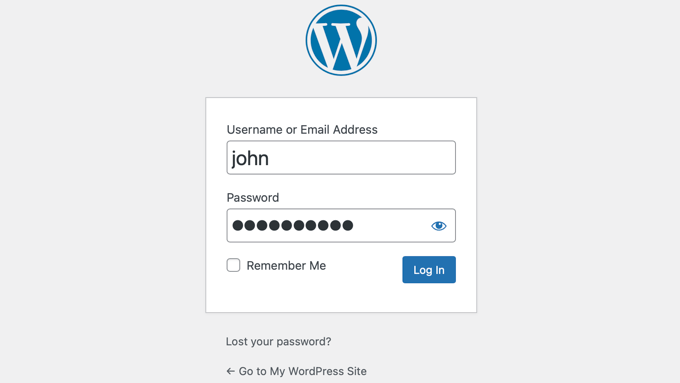
The Importance of Keeping Your Website Content Updated
Getting more engagement and traffic from updating your content and creating and maintaining a blog. Here are Two articles in one to help you.
- The Importance of Keeping Your Website Content Updated.
- Adding A Blog To Keep Content Updated And Visitors Engaged.
Having a website is essential for any business or individual looking to establish an online presence. However, simply having a website is not enough. In order to attract and retain visitors, it is crucial to keep your website content updated and regularly add new content, such as blog posts.

Adding blog post to your website to increase your website traffic and keep content fresh and updated
The Importance of Keeping Your Website Content Updated
1. Improved Search Engine Rankings
One of the main reasons to keep your website content updated is to improve your search engine rankings. Search engines like Google prioritize websites that provide fresh and relevant content. By regularly updating your website with new content, you signal to search engines that your website is active and worthy of higher rankings.
Additionally, adding new blog posts allows you to target specific keywords and phrases related to your industry or niche. This can help improve your website’s visibility in search engine results and attract more organic traffic.
2. Increased User Engagement
When visitors come to your website and find outdated content or a lack of new information, they may quickly lose interest and leave. On the other hand, regularly updating your website with fresh content keeps visitors engaged and encourages them to explore further.
By adding new blog posts, you provide valuable and informative content that can educate, entertain, or inspire your audience. This not only keeps visitors on your website for longer periods of time but also encourages them to return in the future.
3. Establishing Authority and Expertise
Adding new blog posts allows you to share your knowledge and experiences with others, positioning yourself or your business as an authority in your industry. By consistently providing valuable and well-researched content, you can build trust with your audience and establish yourself as an expert.
When visitors see that you regularly update your website with insightful blog posts, they are more likely to view you as a credible source of information. This can lead to increased brand loyalty, customer trust, and even potential partnerships or collaborations.
4. Increased Social Media Engagement
When you regularly add new content to your website, such as blog posts, you have more material to share on your social media platforms. This can help drive traffic back to your website and increase engagement on your social media channels.
By sharing your blog posts on social media, you can attract new visitors who may not have discovered your website otherwise. Additionally, engaging with your audience on social media through discussions and comments on your blog posts can help foster a sense of community and further establish your online presence.
5. Keeping Up with Industry Trends
The online landscape is constantly evolving, and new trends, technologies, and ideas emerge regularly. By regularly updating your website content and adding new blog posts, you can stay current with industry trends and provide your audience with the latest information.
Keeping up with industry trends not only helps you stay relevant but also positions you as a forward-thinking and knowledgeable resource. This can attract a wider audience and help you maintain a competitive edge in your industry.
Why Create a Blog with Posts on Your Website and Share Those Posts on Social Media
Creating a blog on your website and sharing the posts on social media can have numerous benefits for your online presence and business. In this digital age, having a blog has become an essential tool for businesses and individuals alike. Let’s explore why creating a blog with posts on your website and sharing those posts on social media is so important.
1. Establishing Expertise and Authority
By regularly publishing informative and valuable content on your blog, you can establish yourself or your business as an expert in your field. Sharing these posts on social media platforms allows you to reach a wider audience and showcase your knowledge. This helps build trust and credibility among your target audience and potential customers.
2. Increasing Website Traffic
Creating a blog and regularly updating it with fresh content gives people a reason to visit your website. When you share your blog posts on social media, you attract more visitors to your website, increasing your overall website traffic. This increased traffic can lead to more opportunities for engagement, conversions, and sales.
3. Improving Search Engine Optimization (SEO)
Blogging is an effective way to improve your website’s search engine optimization. By creating keyword-rich content and regularly updating your blog, you increase the chances of your website appearing in search engine results. When you share your blog posts on social media, you also increase the chances of others linking to your content, which further boosts your SEO efforts.
4. Engaging with Your Audience
A blog provides an excellent platform for engaging with your audience. By allowing comments on your blog posts, you can encourage discussions, answer questions, and gain valuable feedback. Sharing your blog posts on social media platforms opens up even more avenues for interaction, as people can like, share, and comment on your posts, thereby increasing engagement and building a community around your brand.
5. Building Brand Awareness
Consistently sharing your blog posts on social media helps increase your brand’s visibility. When people see your posts on platforms like Facebook, Twitter, or LinkedIn, they become familiar with your brand and what you have to offer. Over time, this brand awareness can lead to increased brand recognition, loyalty, and ultimately, more business opportunities.
6. Generating Leads and Conversions
A well-crafted blog post can serve as a lead generation tool. By providing valuable content, you can capture the interest of potential customers and encourage them to take action. Including call-to-action buttons or links within your blog posts can direct readers to relevant landing pages or product pages, increasing the chances of conversions and sales.
7. Staying Relevant and Competitive
In today’s fast-paced digital world, staying relevant and competitive is crucial. Creating a blog and sharing posts on social media allows you to keep up with industry trends, share insights, and showcase your unique perspective. This helps you stay ahead of the curve and positions you as a thought leader in your field.
In conclusion, keeping your website content updated and adding new blog posts is crucial for various reasons. It improves your search engine rankings, increases user engagement, establishes authority and expertise, boosts social media engagement, and helps you keep up with industry trends. By investing time and effort into regularly updating your website, you can reap the benefits of a thriving online presence.
Creating a blog with posts on your website and sharing those posts on social media is a powerful strategy for establishing expertise, increasing website traffic, improving SEO, engaging with your audience, building brand awareness, generating leads, and staying relevant and competitive. By leveraging the combined power of a blog and social media, you can enhance your online presence, reach a wider audience, and achieve your business goals.





